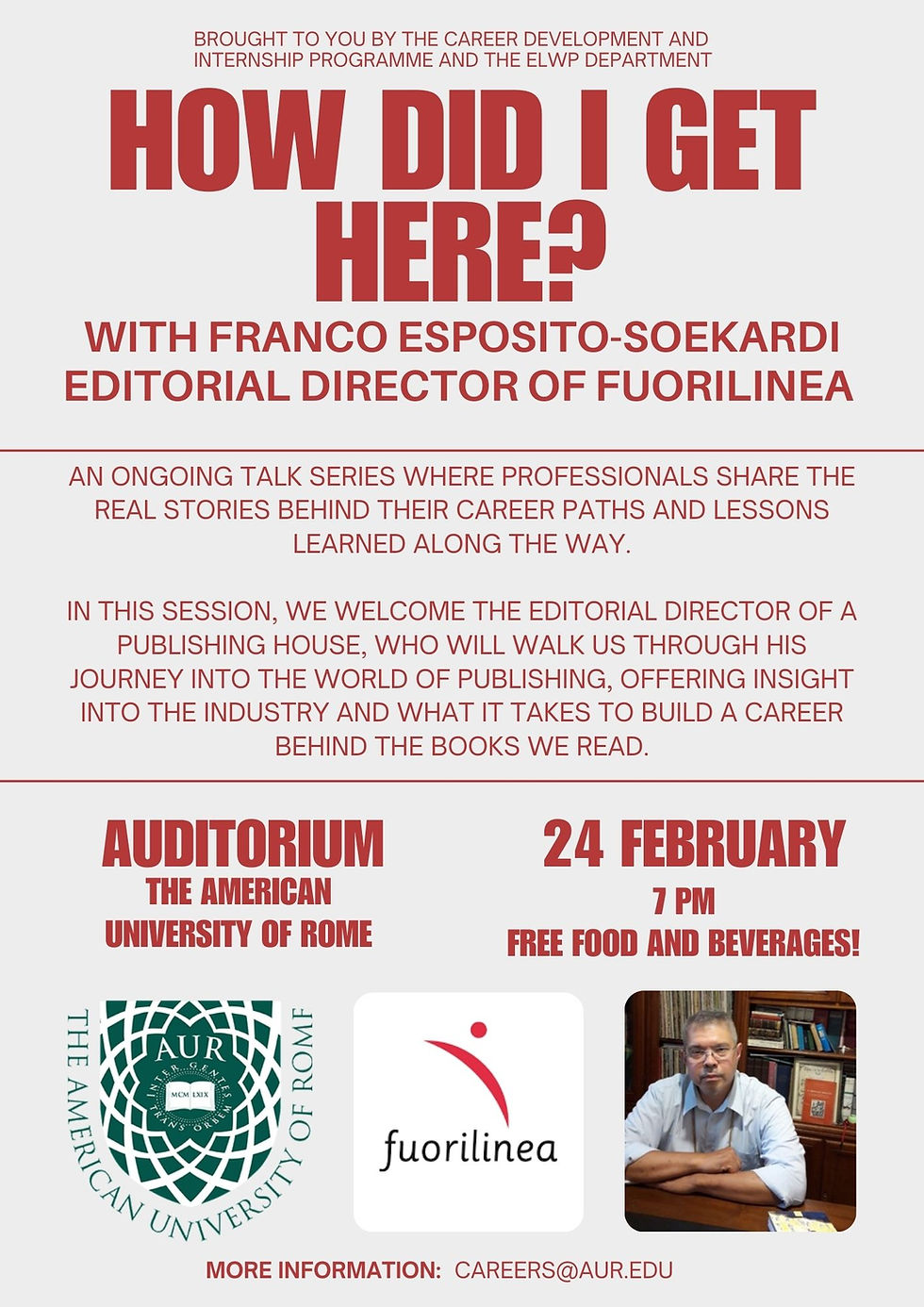Travel Writing During a Pandemic
- Feb 22, 2021
- 4 min read

As a university student, I am at a point in my life where I feel expected to know about my interests. So, for the past year, I have been exploring all possibilities: screenwriting, poetry, journalism, copyediting. At the beginning of 2021, when I wanted to experiment in combining my greatest passion, writing, with one of my lesser but also great passions, traveling, I found little to do. How can one travel write during a time when travel is nearly impossible, countered my professor to whom I proposed the idea. I thought of writing about Corona as a traveler, or about the distinctions between my home country and Italy, but I ended up abandoning the pursuit altogether. Still, there is hope for the travel writer.
Andrea Sachs is a travel writer for The Washington Post. In October 2020, The Post published "Home and Away: A lifetime of travel writing prepared The Post's Andrea Sachs for everything—but staying in one place," a piece about the chains in which Covid has entrapped her work. She writes, "The travel industry is putty in the pandemic's hands. No one knows when it will come back—or in what shape." The pandemic has left Sachs and other travel writers having to include news articles, historical essays, and virtual events as a significant part of their publishing. Sachs, for instance, published pieces such as "To sample is human, but our beloved lipstick testers and cheese cubes aren't coming back anytime soon," on August 31, 2020; "Here's what you need to know about getting a coronavirus test at the airport," on November 12, 2020; and "Is your virtual whiskey or cheese tour missing an ingredient? Try one with samples," on January 29, 2021.

The form of travel writing has changed, maybe permanently, but it has not disappeared. Sachs says, "Over the years, I have discovered that a little discomfort or onset of the jitters can lead to a profound moment." In "Home and Away," she travels through her memories and explores her personal relationship with travel, including stories she may not have published otherwise. She travels through time.
This is the idea that one student in my class with said professor had more writing intuition than I to conjure. She is working on a kind of diary that will follow the narrator on a walk through Rome, as she gets flashbacks of a time before Covid took over our lives. One can also apparently travel while stationary, as in A Week at the Airport: A Heathrow Diary, by Alain de Botton, published in 2009. The author wrote the book while on a raised platform in the middle of Terminal 5 of the Heathrow airport and while working on a projected computer screen, so that passersby could stop to exchange anecdotes. The book demonstrates how one can tell stories from across the world without moving.
If one searches further back in literary history, he can find examples of studies of microcosms. Xavier de Maistre authored A Journey Around My Room in the late eighteenth century. Maistre was a young aristocrat who, in attempting to escape the French Revolution, found himself captive in his home in Turin for forty-two days. He humorously examines various objects as a travel writer would, proving that one need not visit foreign locations to be an explorer. Likewise, every English major can recognize the tireless details of David Thoreau's Walden, published in 1854, wherein he recounts his time living in a secluded cabin in the woods. And, if the English major remembers correctly, he will say that Thoreau recorded his every expenditure in a plight of social criticism. The author meant to express that one need not live in a society to comment on it.
Travel writing is not a prescription so much as it is a concept. An ambitious writer can travel through anything, tangible or abstract, space or time, without the need to leave his desk. This is quite a convenient revelation as the need for lockdowns all over the globe dwindles and rises repeatedly. The interactivity of human life is unpredictable, but the promise of a writing subject is always loyal. In order to write a successful travel piece during the pandemic, an author only needs to remember a few things:
1 . He has more than one sense with which he can experience his surroundings.
The author should use any and all of the senses he has: sight, sound, taste, touch, and smell. And, if ever possible he should use those senses beyond the main five. For example, let's not forget thermoception, the perception of heat; proprioception, the perception of body awareness; and nociception, the perception of pain.
2 . He can explore his stationary self in relation to the outside world.
The author can attempt to mirror his internal conflict, or his microcosmic observations with independent events of which he is aware, such as Thoreau did.
3 . Travel is not one-dimensional.
The author can travel through time, memories, and imagination. A writer should not limit himself creatively. If he does, he will become frustrated in times like this, when outside obstacles arise.




That's a really interesting challenge to consider travel writing during a time when travel is restricted! For those still planning their travel to Italy and looking for activities in a beautiful lakeview setting, you might find information about Segeln Cannobio (sailing in Cannobio) on Lago Maggiore Segeln relevant.
Berikut link kabar4d login cepat tanpa lelet